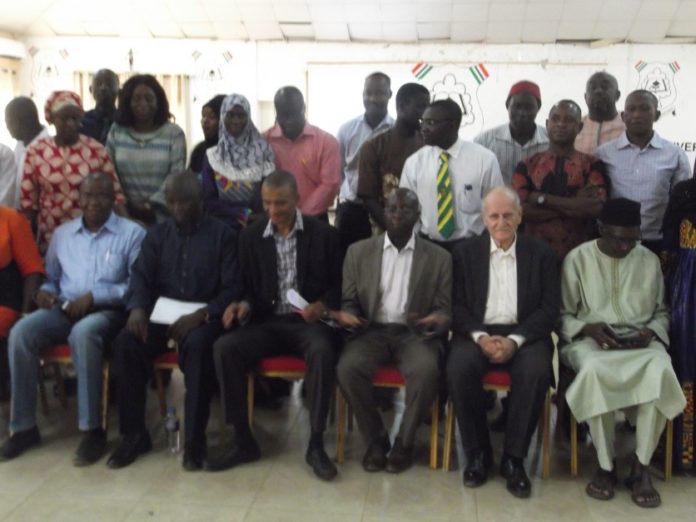By Madiba Singhateh
The Ministry of Higher Education, Research, Science and Technology in collaboration with the University of the Gambia, on Monday August 5th 2019, held a workshop on a feasibility study and technical training on climate change and renewable energy at the University’s Faculty of Law.
The workshop which was sponsored by the German Ministry of Higher Education and Research, had the objective to study and create employment for Gambian youth in the solar energy industry and to expand solar energy accessibility and affordability for domestic and farm-use throughout the country.
In delivering the welcome remarks, Deputy Permanent Secretary at the Ministry of Higher Education, Sulayman Barry, said the feasibility study will be conducted from June 2019 to 2020, and that at the end of the study, a pilot project on renewable energy is expected to be implemented in the Gambia.
‘‘As you are all aware, the Ministry places a high premium on the development of the human capital stock of the country as enshrined in the National Development Plan (NDP) 2018-2030, and the desired aim of the project is to equip the youth with the requisite skills in renewable energy and entrepreneurship,’’ DPM Barry said; that in order to improve the lives and livelihood of the citizenry especially the youth and to curb irregular migration, development and promotion of skills acquisition is paramount. ‘‘Intervention that supports the building of capacity and gainful employment of youth, will receive maximum support from the Ministry,’’ he said. He thanked the German Federal Ministry, BMBF, UTG and WASCAL for support in implementing the project. ‘‘It will contribute to global mitigation efforts to reduce greenhouse gas (GHG) emission in the country,’’ he concludes.
Speaking on behalf of the Vice Chancellor of the University of the Gambia, Dr. Mommodou Jain said renewable energy is essential in the economic development of any country and the Gambia is no exception. ‘‘For example industrialization of the Gambia will be highly challenged without adequate supply of reliable source of energy,’’ he said; that new emerging technologies and sources of reliable energy can be a mixture of solar energy, bio-energy, waste energy and wind energy. He concluded by thanking MoHERST and UTG and BMBF for the implementation.
The program was chaired by Dr. Siddat Yaffa, Associate professor at the UTG and the Acting Director of the UTG WARSAL climate change at Farafenni campus.




















